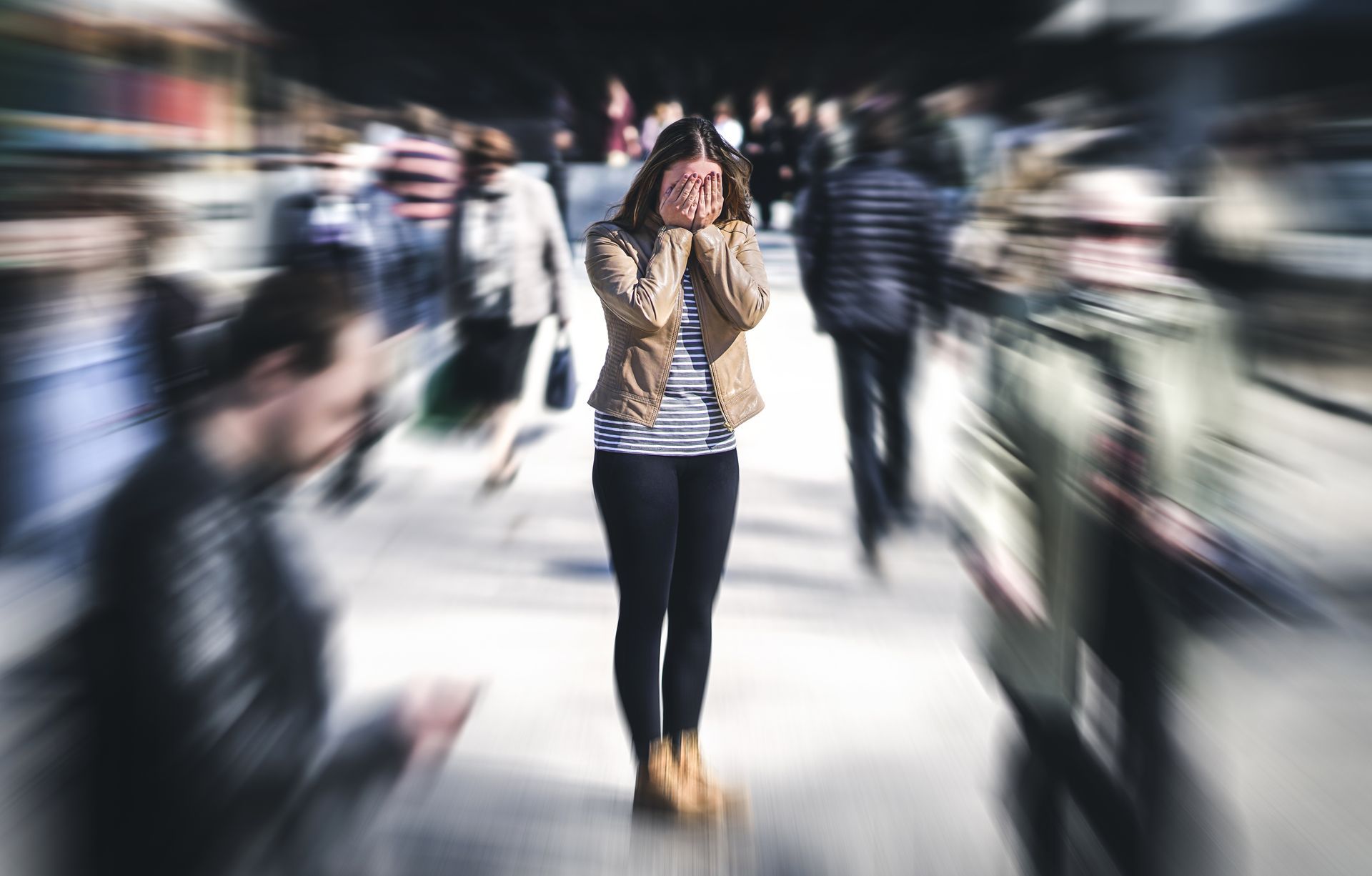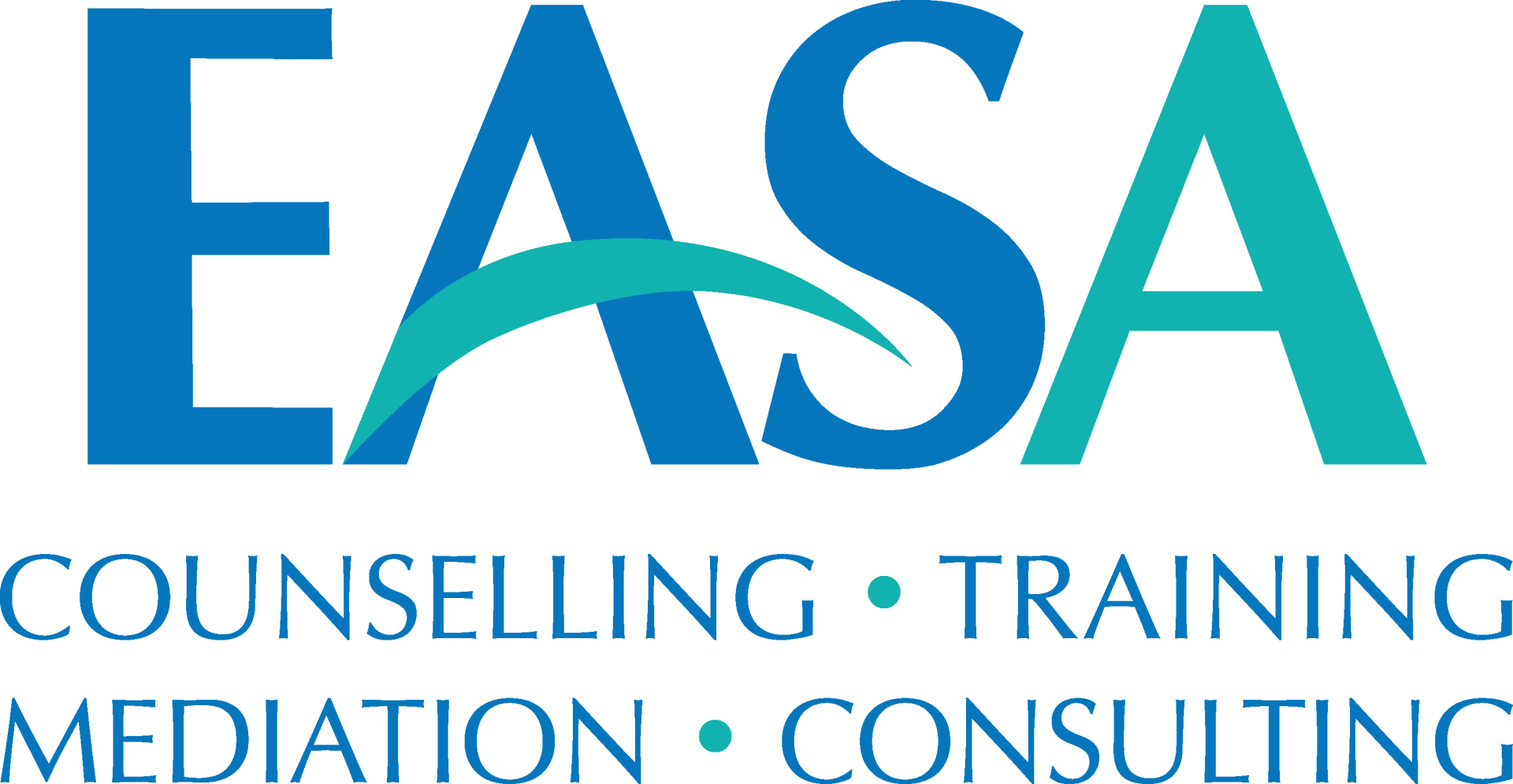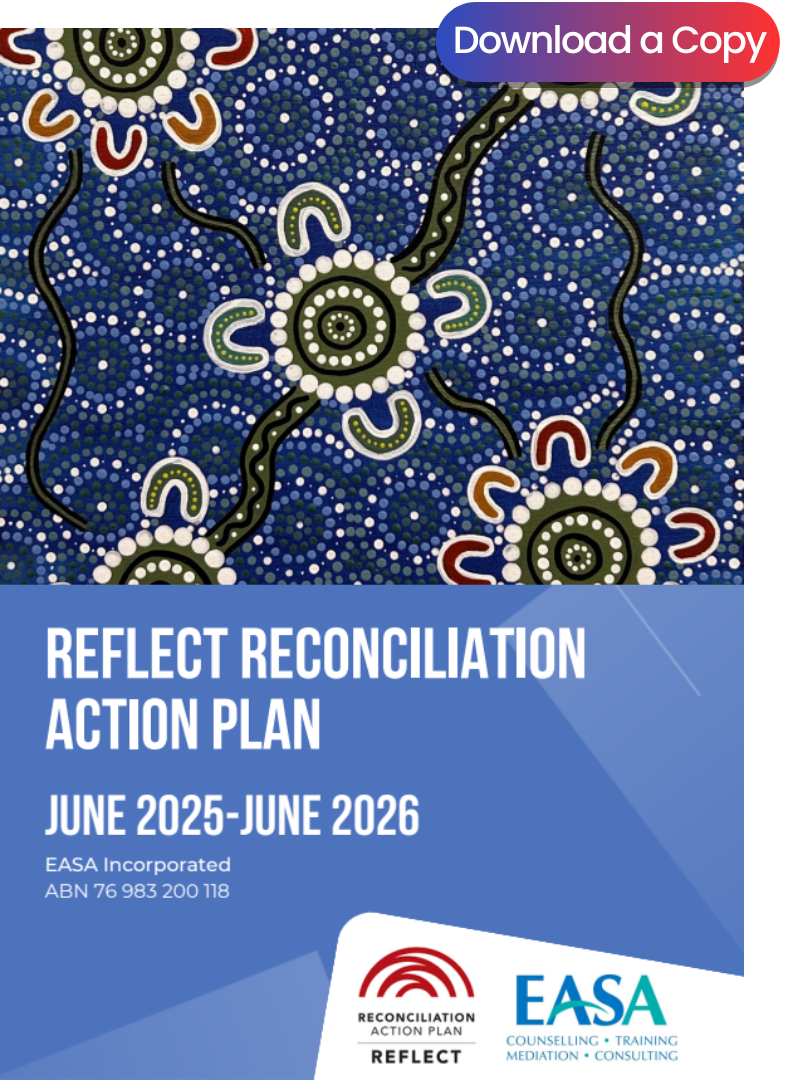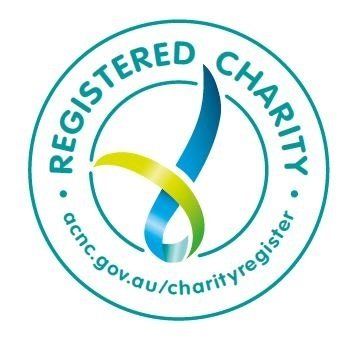What is Anxiety?
Anxiety is a common response to stressful circumstances like public speaking or taking a test. It usually passes once the stressful situation has passed, or the 'stressor' is removed.
When anxious thoughts, feelings, or physical symptoms persist over a prolonged period of times, happen without reason, and have a negative impact on a person's every-day life, an anxiety disorder will likely be diagnosed.

Common Symptoms of Anxiety Include:
- Persistent worry
- Difficulty concentrating
- Restlessness
- Difficulty sleeping
- Irritability
- Rapid heartrate
- Trembling
- Feeling light-headed
- Upset stomach
- Sweating
Some of these symptoms can be associated with physical health conditions, so it's always best to see your GP so they can check them properly.
What Causes Anxiety?
The combination of factors which result in an individual developing an anxiety disorder differ from person to person. However, there are some major factors that have been identified, which may be common to sufferers. These factors can be effectively divided into biological and psychological causes.
Biological Factors:
Based on family studies, it has been suggested that individuals may inherit a vulnerability to developing an anxiety disorder (Hettema et al., 2001).
Psychological Factors:
Having this genetic vulnerability does not imply that these individuals will develop an anxiety disorder. A great deal depends on the lifestyle of that person, the types of life stressors they have encountered and their early learning.
Approximately one in four people will experience an anxiety disorder at some time in their life. It is the most common mental health condition in Australia (Australian Bureau of Statistics, 2022).
Managing Anxiety
Some simple lifestyle changes can assist in helping to reduce anxiety. These include:
- Schedule daily brief mindfulness exercises with apps like SmilingMind and moodgym
- Engage in some regular exercise
- Reduce your intake of drugs and other stimulants (i.e., caffeine, alcohol)
- Plan a pleasant, enjoyable activity for yourself each day
- Establish good sleeping patterns
- Eat a nutritious diet
- Investigate supplements that may be helpful (e.g., Omega 3 has been shown to reduce anxiety)
- Start a journal - writing down anxious cognitions can drastically reduce their impact
Formal Treatments
Psychological and medical treatment is available for people suffering from anxiety. Psychological treatment usually includes psycho-education around what is happening and why, as well as teaching you skills to help manage the anxiety.
EASA have psychologists and counsellors who work with mindfulness, Acceptance and Commitment Therapy (ACT) and Cognitive Behaviour Therapy (CBT) - all of which have been shown to be helpful in managing anxiety (Australian Psychological Society [APS], 2018). A general practitioner may prescribe medication if they feel it will be beneficial and suitable.
Additional Online Support:
The Black Dog Institute - https://www.blackdoginstitute.org.au/resources-support/digital-tools-apps/
References
Hettema, J. M., Neale, M.C., & Kendler, K.S. (2001). A review and meta-analysis of the genetic epidemiology of Anxiety Disorders. American Journal of Psychiatry, 158(10), 1568-1578. https://doi.org/10.1176/appi.ajp.158.10.1568
Australian Psychological Society (APS). (2018). Evidence-based psychological interventions in the treatment of mental health disorders: A literature review (4th ed.). Melbourne: Author.
Australian Bureau of Statistics. (2023). National survey of mental health and wellbeing: Summary of results, 2023. https://www.abs.gov.au/statistics/health/mental-health/national-study-mental-health-and-wellbeing/2020-2022








